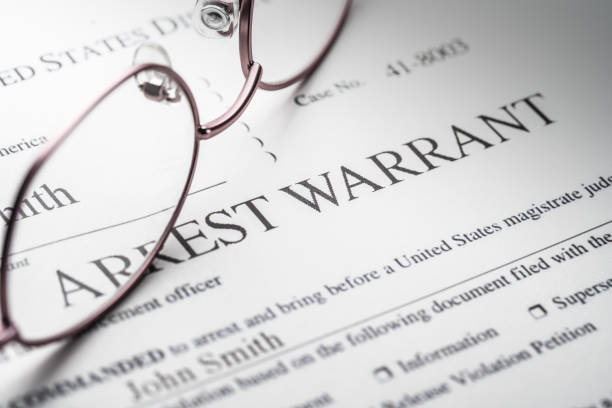Warrants are crucial in the criminal justice system, allowing law enforcement to take specific actions like searches or arrests. This guide will explain the basics of warrants, the different types, and what to do if you face one.
Contents
What is a Warrant?
A warrant is a legal document issued by a judge or magistrate that authorizes law enforcement to take a particular action. Warrants are typically based on probable cause that a crime has been committed. They must describe the person, place, or things to be searched or seized with reasonable specificity.
The main types of warrants include:
- Arrest warrants
- Search warrants
- Bench warrants
Arrest Warrants
An arrest warrant authorizes law enforcement to arrest and detain a specific person. Reasons an arrest warrant may be issued include:
- Probable cause that the person committed a crime
- Failure to appear for a scheduled court date
- Violation of probation or parole terms
When police have an active arrest warrant, they can arrest the named individual at any time and place.
Search Warrants
A search warrant allows police to search a specific location for evidence related to a crime. To obtain a search warrant, police must:
- Show probable cause that evidence of criminal activity will be found
- Describe the place to be searched and items to be seized
- Have the warrant signed by a judge
Search warrants typically limit when and how the search can be conducted.
Bench Warrants
A judge issues a bench warrant when someone fails to comply with a court order. Common reasons include:
- Failure to appear for a scheduled court date
- Failure to pay court-ordered fines
- Violation of bail conditions
Bench warrants authorize the immediate arrest of the named individual.
What to Do if There’s a Warrant for Your Arrest
If you believe there may be a warrant out for your arrest:
- Contact the court to verify if a warrant exists
- Consult with a criminal defense attorney
- Consider turning yourself in voluntarily
- Do not attempt to flee or evade law enforcement
Working with a Las Vegas warrant defense attorney can help protect your rights and potentially resolve the warrant without arrest.
Your Rights When Facing a Warrant
Even with an active warrant, you still have important legal rights:
- Right to remain silent
- Right to an attorney
- Right to know the charges against you
- Right to a reasonable bail amount in most cases
Exercising these rights can help protect you during the legal process.
Challenging the Validity of a Warrant
In some cases, it may be possible to challenge the validity of a warrant. Potential grounds include:
- Lack of probable cause
- Incorrect or outdated information
- Procedural errors in obtaining the warrant
An experienced defense attorney can review the warrant and determine if there are grounds to challenge its validity.
Warrant Execution and Arrests
When executing an arrest warrant, law enforcement must follow certain procedures:
- Identify themselves as police officers
- State they have a warrant
- Show the warrant upon request (if feasible)
- Use only reasonable force if necessary
Police can enter a residence to execute an arrest warrant if they have reason to believe the person is inside.
Search Warrant Limitations
Search warrants have specific limitations, including:
| Limitation | Description |
| Scope | Only areas and items listed can be searched |
| Time | Must be executed within a specified timeframe |
| Knock and announce | Police must generally announce their presence before entering |
Violations of these limitations may lead to evidence being ruled inadmissible in court.
Resolving Outstanding Warrants
Proactively addressing an outstanding warrant is often the best course of action. Options may include:
- Appearing in court voluntarily
- Negotiating a plea agreement
- Requesting a bail hearing
- Filing a motion to quash the warrant
Working with an attorney can help navigate these options and potentially minimize negative consequences.
The Importance of Legal Representation
Facing a warrant can be a stressful and confusing experience. Having skilled legal representation is crucial for:
- Understanding your rights and options
- Challenging unlawful warrants or searches
- Negotiating with prosecutors
- Developing an effective defense strategy
An attorney can guide you through the legal process and work to protect your freedom and future.
Wrapping Up
Warrants are powerful legal tools that grant law enforcement significant authority. Understanding the different types of warrants, your rights, and how to respond can make a big difference if you find yourself in this situation. While warrants are serious matters, remember that you have legal options and protections. Seeking qualified legal counsel promptly is often the best way to address a warrant and work towards a favorable resolution.




